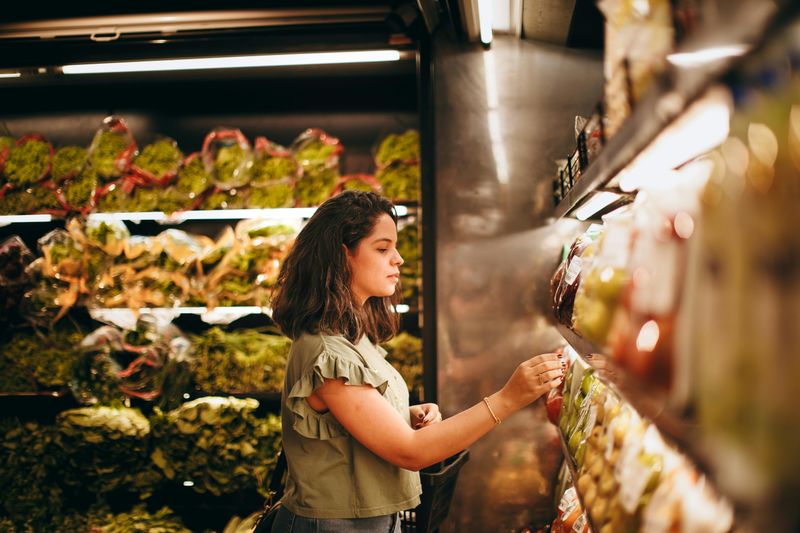Frugal living isn’t just about pinching pennies anymore—it’s become a full-blown lifestyle movement that’s reshaping how people think about money, possessions, and happiness. From young adults to retirees, more people are choosing to spend less, save more, and focus on what truly matters. This shift isn’t just smart—it’s becoming the cool, responsible way to live in today’s world.
1. Economic Realities Are Driving Change

Across the globe, rising inflation and persistent cost-of-living hikes have made careful spending a survival skill rather than a preference. People are adapting to fluctuating grocery prices, unaffordable rents, and shrinking disposable income.
More families now track every purchase, cut subscriptions, and plan meals strategically to stretch their budgets. The old stigma around “being frugal” is fading as practical money management becomes essential.
This economic shift isn’t just about saving—it’s about resilience. Households are discovering that financial discipline offers stability and confidence in uncertain times, turning frugality into a form of empowerment rather than deprivation.
2. Financial Resilience and Debt Freedom

The path to true security often begins with taking control of personal finances. Many people are adopting frugal habits to escape credit card debt, medical bills, or student loans weighing them down.
By focusing on needs over wants, consumers are freeing up income to build emergency funds and long-term savings. These small, consistent steps are proving more sustainable than chasing fast income or risky investments.
Frugality also reshapes priorities. Instead of living paycheck to paycheck, individuals gain breathing room, reduced stress, and the confidence that comes from being prepared for life’s financial curveballs.
3. Generational Shift Toward Smart Spending

Younger generations are redefining what financial success looks like. Instead of flaunting designer brands, many Gen Z and Millennials are opting for minimalist wardrobes, thrift finds, and practical purchases.
This mindset comes from growing up during recessions and global uncertainty, shaping values around sustainability and independence. Social media trends like “de-influencing” and “budget hacks” have only accelerated this financial awareness.
For these digital natives, smart spending isn’t about sacrifice—it’s about control. Choosing quality over quantity gives them both financial flexibility and a sense of purpose in how they engage with consumer culture.
4. Environmental and Circular Economy Awareness

A growing awareness of climate change and overconsumption has made frugality an environmental statement. Choosing to reuse, repair, or buy second-hand reduces waste while supporting the planet.
The circular economy thrives on these frugal principles—keeping resources in use and minimizing excess production. From upcycling furniture and reusable bottles to sharing tools, people are turning everyday thrift into eco-friendly innovation.
This shift shows that sustainability and frugality are intertwined. Living simply not only saves money but also lightens one’s ecological footprint, proving that responsible choices can align seamlessly with economic and environmental goals.
5. Mindful Consumption and Intentional Living

Modern frugality inspires mindfulness in how people spend, live, and define happiness. Instead of reacting to marketing or social pressure, individuals are learning to pause and ask, “Do I truly need this?” before making purchases.
This awareness helps curb impulsive spending and encourages a deeper understanding of personal priorities and long-term goals. The same mindset extends beyond money—it shapes how people manage time, organize their homes, and nurture relationships.
Simplicity replaces clutter, bringing balance and focus. Mindful consumption ultimately turns frugal living into a meaningful practice, aligning spending with core values and creating lasting financial peace and emotional fulfillment.
6. Savings Redirected Toward Meaningful Goals

Here’s a secret: frugal living isn’t about deprivation—it’s about redirection. People are cutting back on daily lattes and impulse buys so they can afford the things that truly matter.
Instead of accumulating more stuff, they’re saving for dream vacations, down payments on homes, or starting their own businesses. The daily sacrifices feel small compared to the big rewards waiting at the finish line.
This goal-focused approach keeps motivation high. When you know that skipping takeout this week means getting closer to that European adventure or debt-free life, saying no becomes surprisingly easy and even exciting.
7. Psychological and Emotional Well-Being

Living frugally does more than protect a bank balance—it safeguards mental health. People who embrace simpler lifestyles often report less anxiety, fewer money-related arguments, and a greater sense of calm in their daily routines.
The ability to live within one’s means provides a quiet confidence that wealth alone can’t replicate. Frugality also fosters gratitude. By focusing on essentials rather than endless consumption, individuals learn to appreciate what they already have instead of chasing what they don’t.
That shift creates lasting emotional balance and contentment. Ultimately, the frugal mindset nurtures self-control, optimism, and peace—qualities that contribute to genuine happiness.
8. Cultural Normalization of Simplicity

Frugal living has evolved from private practice to public movement. Social media challenges like “no-buy months” and “minimalist resets” now celebrate simplicity, turning thrift into a shared experience.
Influencers promote budgeting and second-hand shopping as empowering, not embarrassing. This cultural embrace of restraint has transformed how people view success. The emphasis is no longer on luxury or excess but on purpose, balance, and sustainability.
Communities built around frugal values are reshaping consumer identity. Simplicity is now aspirational—a lifestyle that prizes intention over indulgence. Choosing to live with less has become both a financial decision and a modern social statement.

Comments
Loading…